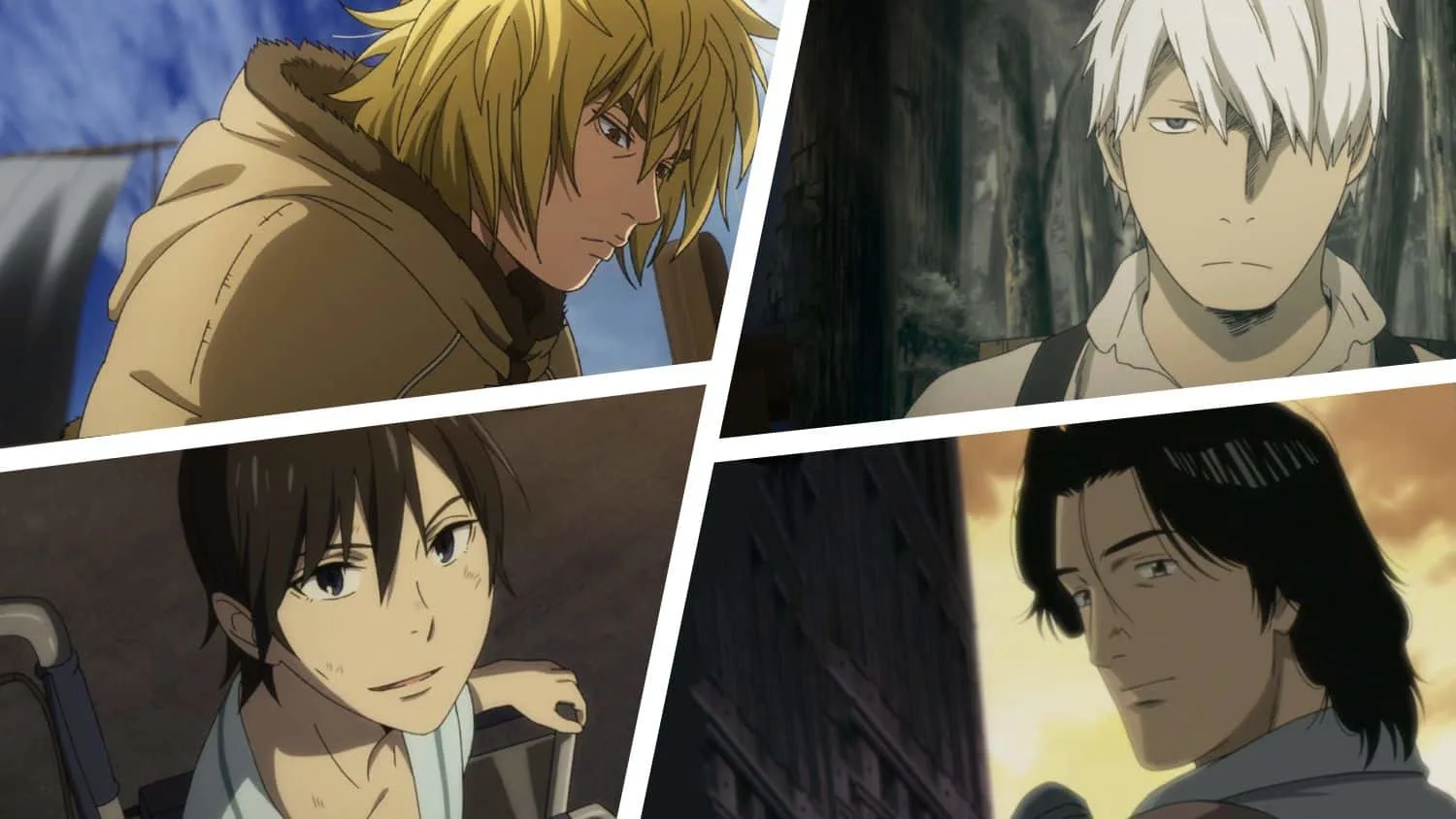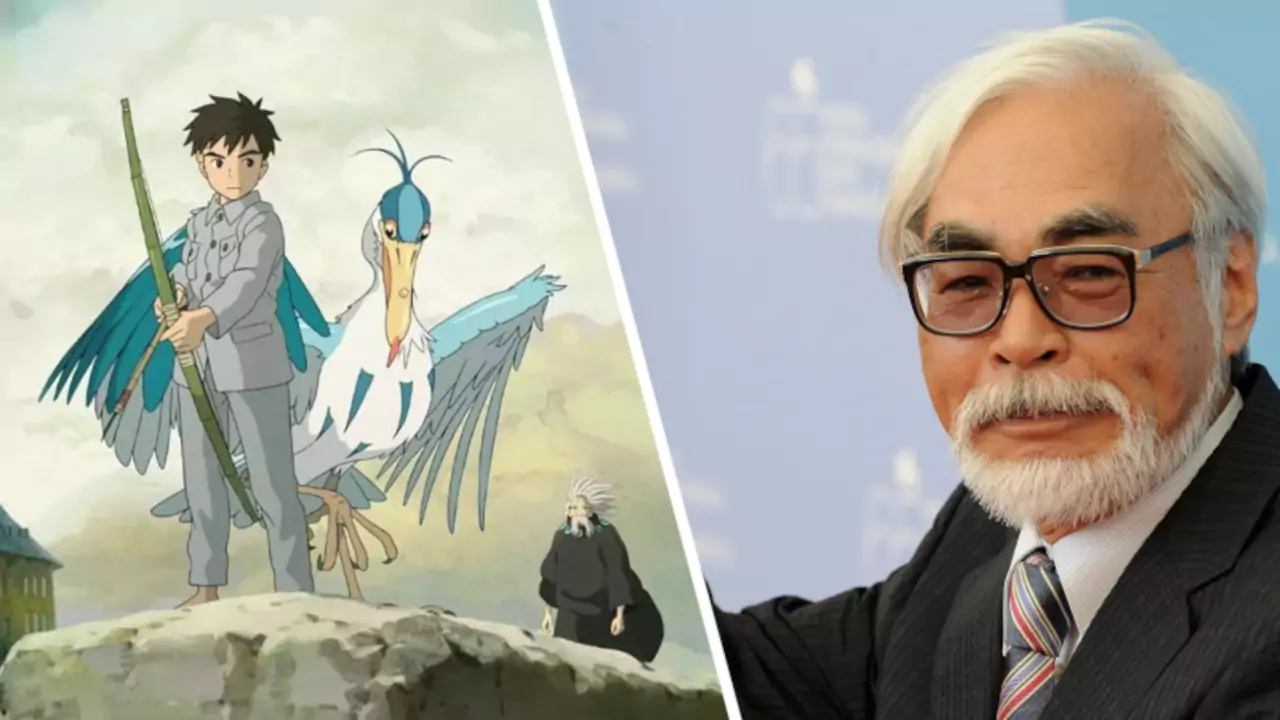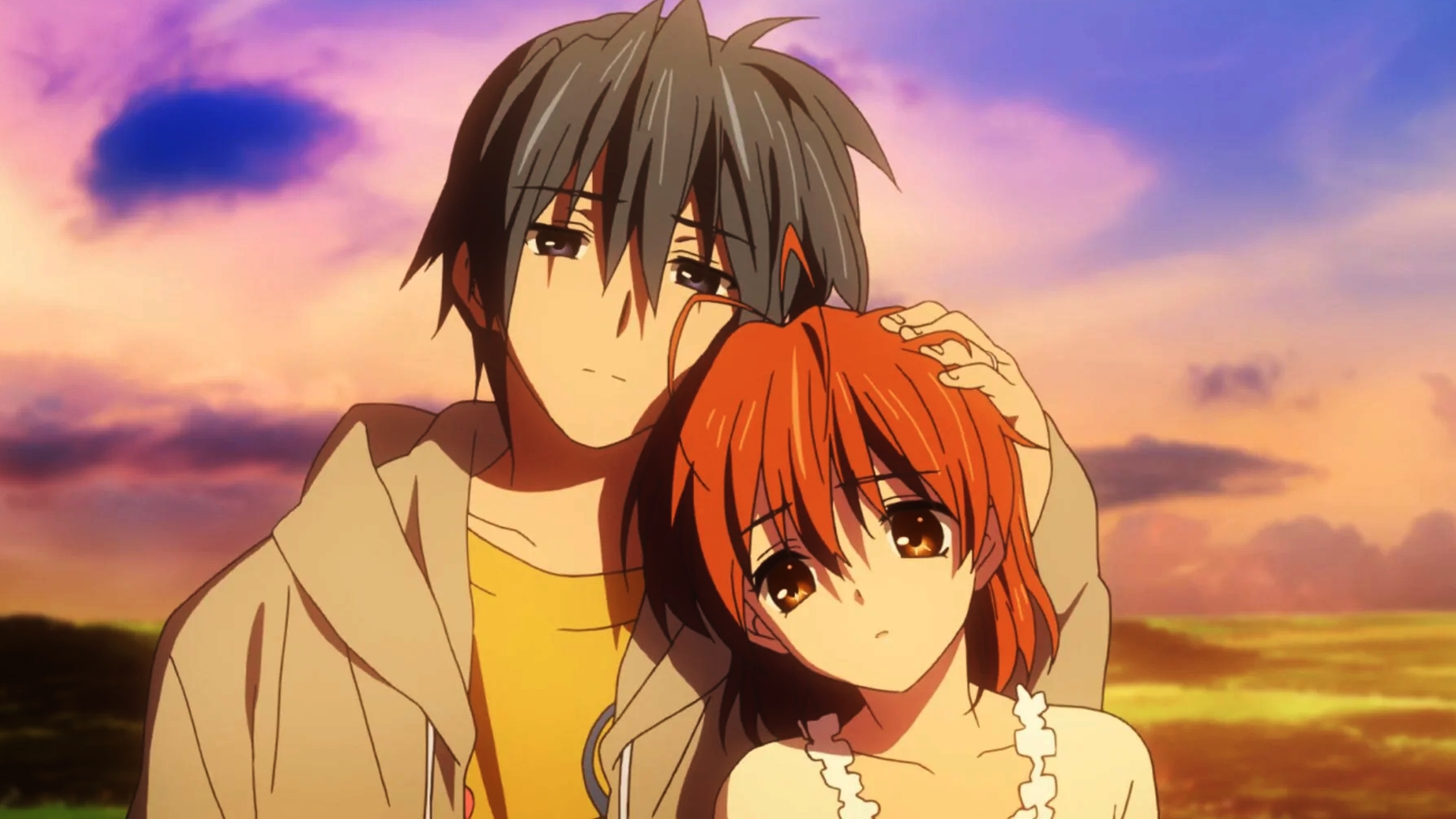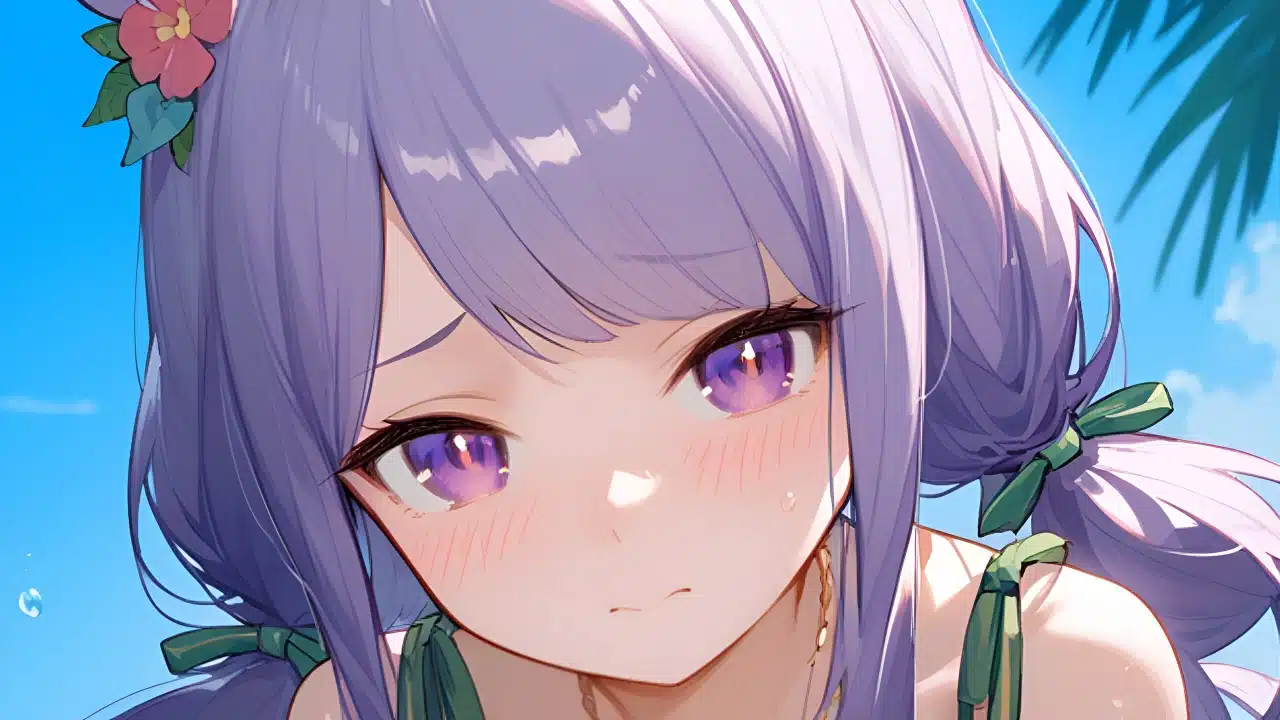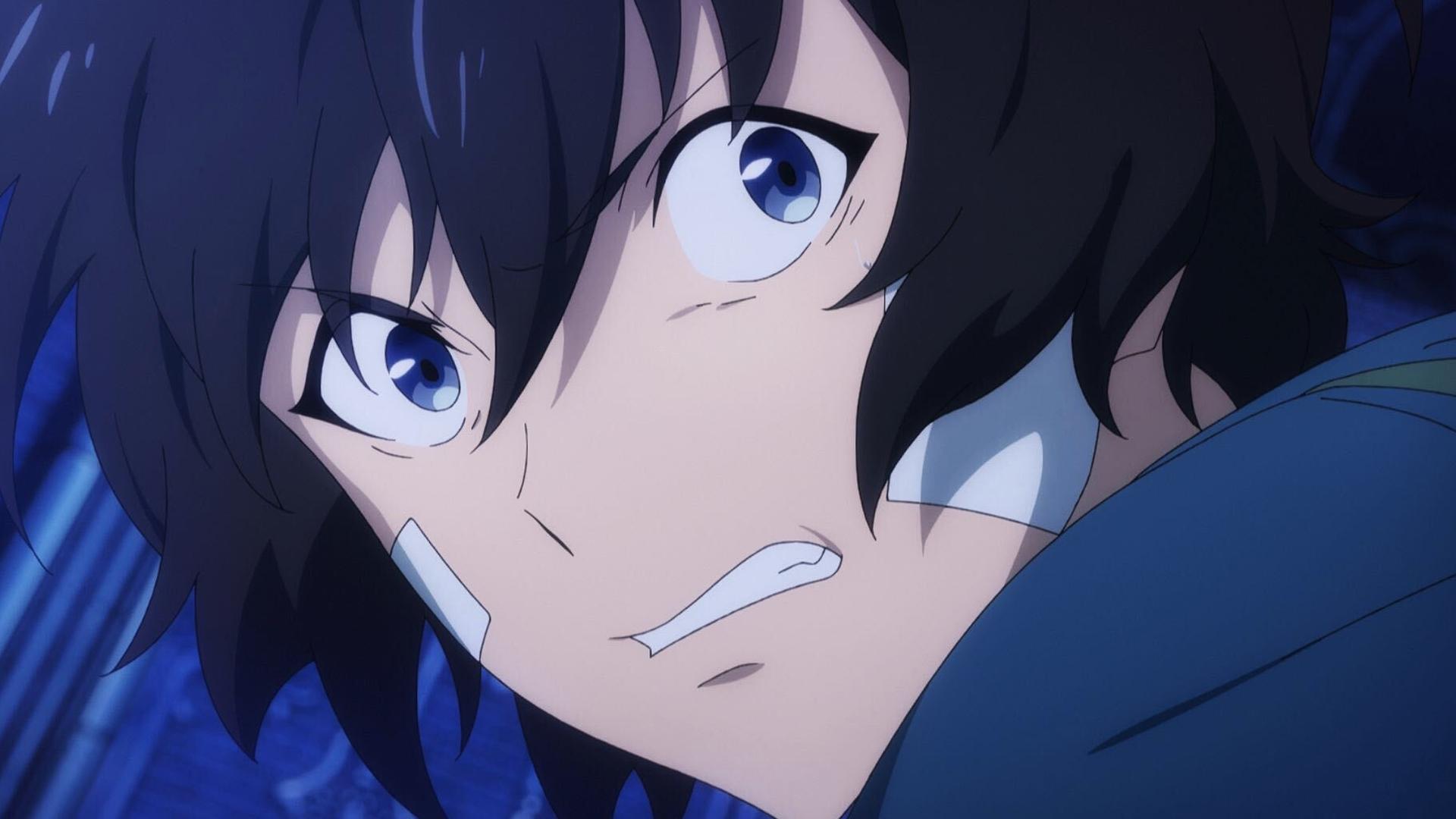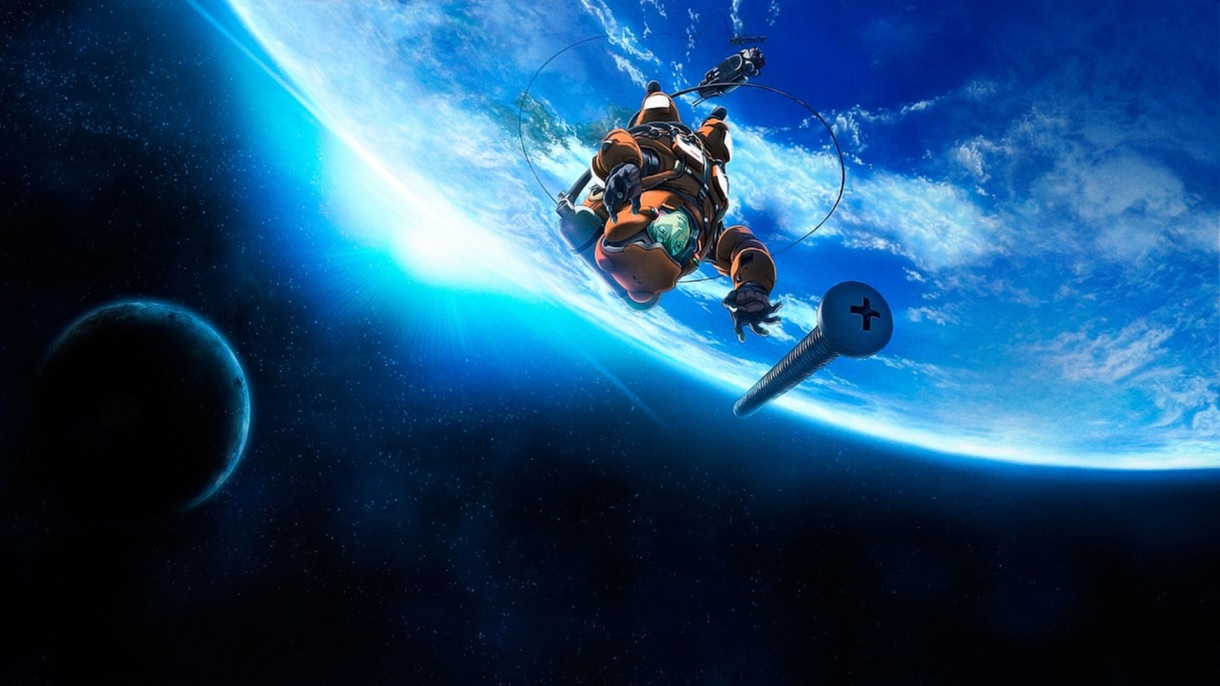Articles and Lists
Evangelion's Religious Symbolism, Explained
Advertisement
Summary
- Neon Genesis Evangelion is full of religious symbolism, generating intense debate among fans and scholars.
- From crosses to biblical names, the anime explores themes of sacrifice, salvation, and the human condition.
- Although the creators cite aesthetic reasons for the symbolism, viewers interpret the imagery in a variety of ways, adding depth to the series.
Neon Genesis Evangelion is one of the most famous and critically acclaimed anime series ever released. Created by the legendary Studio Gainax and written by anime visionary Hideaki Anno, the show has firmly established itself as a must-see for anime fans. Even today, years after its initial release, the show still generates much debate, with fans and scholars offering their opinions on the show's themes and story. One of the most debated Neon Genesis Evangelion The topic is the use of religious symbolism. But what does this symbolism mean, and why was it included in the beloved series?
It's easy to see why fans heavily debate the meaning of religious symbolism in Neon Genesis Evangelion, as the show features an impressive number of religious references. Some scenes feature multiple pieces of religious symbolism at once, allowing eagle-eyed viewers to easily create unique interpretations of the show's plot and overall message.
Neon Genesis Evangelion has a huge amount of religious symbolism
THE most notable religious reference in Evangelion it is the Christian cross, as it is a constant sight in the series. For example, Sachiel's particle beam forms a cross, Zeruel's particle beam causes cross-shaped explosions, dying angels combust into crosses, and Misato Katsuragi frequently wears a cross pendant. Furthermore, crosses are frequently incorporated into the environment or formed through the creative use of light and shadow. For example, Shinji is seen walking down a path that resembles a cross when viewed from above in the fourth episode. Later, the shadow of a cross is seen behind Gendo Ikari when he discusses the evolution of humanity. Even more notable, several key establishing shots show Christian churches with prominent crucifixes on their spires.
Notable religious references in Evangelion
- Crucifixes
- The Dead Sea Scrolls
- The Fruit of Knowledge
- Angels
- Wizards
More, There are many overt references to the crucifixion in the show. One of the most blatant is Lilith, who is seen tied to a Tau cross. (also known as St. Anthony's Cross) in episode 15. This image is also seen in many other places, including episode 18, where Eva-03 is airlifted via a cross-shaped mechanism that holds the robot in a crucifixion pose. Of course, the most famous use of this imagery occurs End of Evangelion, where Unit-01 is crucified during the triggering of Third Impact. This is followed by a scene where two mass-produced Evas are seen holding a crucifix pose while Shinji chokes Asuka.

15 Anime to Watch if You Like Neon Genesis Evangelion
Neon Genesis Evangelion is a classic mecha anime with a dark twist. Fans should check out these anime with similar vibes and themes.
Furthermore, many notable objects and characters have names related to religion. This is most evident with Angels, as most of them have names that are somehow connected to religion. The most obvious are Adam and Lilith. Adam shares his name with the first man created by God in Christian mythology. Lilith is named after a legendary figure from Jewish folklore.
Lilith was Adam's first wife, but was expelled from the Garden of Eden for refusing to be subservient to Adam. Furthermore, the iconic Spear of Longinus references the Lance of Longinus (also known as the Holy Lance), the weapon used to pierce Jesus' flesh as he hung on the cross. Furthermore, the Magi's supercomputers are named Melchior, Balthasar, and Casper, after the three wise men who visited Jesus on the day of his birth.
Shinji is often seen as a Christ-like figure, embodying the morals and ideals of Jesus.

Rei Ayanami's Story and Fate in Neon Genesis Evangelion Explained
Rei Ayanami is one of the most iconic figures in anime, but her true nature and fate at the end of Neon Genesis Evangelion are the series' biggest enigmas.
With this massive amount of religious symbolism, it's no surprise that many fans and scholars have taken a deep look at Evangelion using a spiritual lens. One of the most common readings argues that Shinji is a figure who personifies the ideals of Jesus. During Evangelion, Shinji sees the dark side of humanity and the struggles people go through. When faced with the ultimate choice between allowing humans to become pure beings through instrumentality or allowing humans to remain individual beings despite the risk of suffering, Shinji chooses to let people remain individual.
Through his immense sacrifice, he declares that there is still hope for humans, despite their flaws and imperfections.By making this decision, Shinji offers a way for humans to obtain salvation in the future. This parallels how Jesus formed a new covenant with humanity when he died on the cross. This covenant accepted the human capacity to sin while also offering a path forward. One that gives people a way to purify themselves of their mistakes, allowing them to eventually reach heaven, despite their imperfect nature.
Other readings argue that Evangelion examines what it means to be human in a world that is becoming increasingly artificial, with Shinji's quest serving as a metaphor for people trying to retain their souls in a world determined to corrupt or eliminate them. They argue that the often disconnected religious references, especially those used by Seele and NERV, function as a metaphor for this corruption.
This is a demonstration of how easily people can be deceived and drawn into the web of false prophets. Furthermore, many analysts use these references to link Evangelion in other religious or spiritual practices. Most notably, people often link Evangelion images for Gnosticism or Kabbalaharguing that the program recreates stories from these religions.
Neon Genesis Evangelion Religious symbolism may mean nothing
Hideaki Anno has given numerous answers about its meaning over the years

The story of the popular Square Enix game is “pretty much just a retelling of Evangelion”
NieR: Automata was one of the many inspirations for the upcoming Stellar Blade, but both games drew heavily from anime like Neon Genesis Evangelion.
However, although the show is filled with religious symbols and things that can be read as metaphors for religious concepts, many argue that Evangelion religious symbolism has no meaning and was only included because it looks good. This argument is supported by several studios Gainax and Evangelion staff members who frequently said that symbolism was included for aesthetic rather than symbolic reasons.
One of those people is Kazuya Tsurumaki, assistant director of Evangelion. At an Otakon panel in 2001, after being asked to explain the show's use of cross-cutting images, it is reported to have said:
There are many giant robot shows in Japan, and we wanted our story to have a religious theme to help distinguish ourselves. Since Christianity is an uncommon religion in Japan, we thought it would be mysterious. None of the employees who worked on Eva are Christian. There's no real Christian meaning to the show; we just think the visual symbols of Christianity look cool. If we had known the show would be distributed in the US and Europe, we might have reconsidered this choice.
In an interview with the German anime magazine fun, Tsurumaki reiterated this point, telling the magazine that they included the iconography of the cross because they believed it would make the show “exotic and mysterious” and that “we thought the mix of science and religion would make the series more interesting.”
And it's not just Tsurumaki who says this. Toshio Okada, the president of Gainax between 1984 and 1992, stated that Hideaki Anno had never read the Bible and instead “picked some interesting technical terms” during a 2003 MIT LectureDuring this talk, he also stated that the team did the same with psychology textbooks, choosing intriguing terms and concepts without delving into them.

RETRO REVIEW: The End of Evangelion
Neon Genesis Evangelion's reinterpreted finale, The End of Evangelion, hits theaters for a limited time, offering a new way to experience a classic.
Hideaki Anno does not deny this, and many of his comments during interviews and discussions support this argument. The September 1996 issue of Animerica presented a paper about Anno's panel at Anime Expo 1996, where he discussed his religious beliefs in response to an attendee's question. Anno said:
"I don't belong to any kind of organized religion, so I guess I could be considered agnostic. Japanese spiritualism claims that there is '
us
' (spirit) in everything, and this is closer to my own beliefs.”
That same year, Anno was interviewed in New type magazine. In this interview, Anno described Evangelion like a puzzle. One that has no single correct answer or interpretation. Anno repeated this statement in 1997 when he was interviewed in the French anime magazine Animeland. During this interview, Anno was asked if the studio had received any complaints about the use of Christian symbolism, with the interviewer noting that the Angels in Evangelion were bad and not good. Anno answered this question by saying:
I don't know much about the Christian religion and it was not my intention to address it or criticize it in any way.
In 1999, Anno appeared in an NHK series titled Welcome back to an extracurricular class, Sempai! In this series, famous people return to their elementary schools and teach the children a lesson, usually about their current field of expertise. In this episode, Anno conducts a Q&A with a group of children working on animation projects. One of these children asks Anno why he decided to name the mechs Evangelion, only for Anno to respond:
It comes from a Christian word meaning "Gospel" and supposedly brings blessings. It's actually related to the Greek. I chose the name because it sounds complicated.
In a subsequent roundtable interview with Komatsu Sakyô, printed in SF Japan MILLENNIUM:00, Anno further emphasized that the religious symbolism was not intentional, responding to Sakyô's questions about the show's themes by saying that the Christian elements were convenient material to structure the story, even telling Sakyô that he invented the eschatological elements of Evangelion as he advanced. Later in the interview, Anno concludes this argument by saying that he “borrowed” elements from Christianity to make his point about the fate of humanity, further confirming the idea that Evangelion Christian imagery should not be read as a single metaphor.
Anno explained this best in a 2000 interview “with a member of Waseda University”. During this interview, Anno noted that he quickly researched things related to Christianity using “dictionary-like” books before adding that many elements of Evangelion are merely symbols that don't convey the full meaning of the series individually. Instead, the show should be viewed as a whole, further reinforcing the idea that the religious references are merely shorthand Anno used to present a grander point, rather than an attempt to convey a sacred message.
Christian symbolism is often used to create aesthetics by Japanese animators
Sometimes symbolism is little more than the atmosphere of the story.

10 best mecha designs in anime, ranked
The best-designed anime mecha are often among the strongest in their respective series, including classics like Mobile Suit Gundam.
An interesting thing to note is that Anno isn't the first Japanese creative to use Christian religious symbolism purely for aesthetic purposes. Several of Anno's biggest influences did so years before. Evangelion was released. Anno has always been public about his love for Ultraman and Tokusatsu. In a 2016 interview with trending newsAnno said he makes reference Ultraman a lot and is not always aware that he is doing so before declaring that Ultraman is your default when trying to create “something interesting”.
In 1972, Ultraman Ace, the fifth Ultraman series, aired an episode called “Death Penalty! 5 Ultra Brothers”. In this episode, Ultraman, Zoffy, Ultraseven, Ultraman Jack, and Ultraman Ace are drawn to the planet Golgotha, a planet named after the site of Jesus' crucifixion.On this planet, the heroes find four crosses on a rocky outcrop. Before they can figure out what's going on, the monster Yapool springs his trap, causing Ultraman, Zoffy, Ultraseven, and Ultraman Jack to be trapped on these crosses.
The next episode: “5 Stars Scattered in the Galaxy”, would feature one of the most iconic scenes of Ultraman story. When all seems lost, the crucified heroes beam their energy into Ultraman Ace, giving him the power to overcome the monsters and free others from certain destruction. Eiji Tsuburaya, the creator of Ultramanmarried a Catholic woman and converted to the religion later in life, leading many people to argue that Ultraman many religious references and the titular hero's Christ-like attributes are deliberate references to Christian ideas and practices.

10 Most Unlikely Evangelion Characters, Ranked
Neon Genesis Evangelion characters like Rei Ayanami and Gendo Ikari have polarizing personalities and are disliked by the fandom for valid reasons.
But since then, many other anime and tokusatsu shows have included similar crucifixion scenes, with Sweetheart, Sailor MoonR, Sailor Moon S, Kamen Rider, Himitsu Sentai Gorenger, Choujin Sentai Jetman, Kaizoku Sentai Gokaiger, and even Digimon featuring crucifixion sequences. While some of these programs likely had Christians working on them, few of these crucifixion scenes are connected to Christian theology beyond the visual of the cross.
Because of this, these crucifixions can be seen as an aesthetic choice based on an iconic scene from Japanese pop culture, rather than a metaphor for true Christian belief. The ubiquity of this reference, combined with Anno's unabashed love of tokusatsu, makes it easy to imagine Anno incorporating crosses and Christian symbols into his work. Evangelion as a loving tribute to your favorite franchise. Discussions closed Evangelion The use of religious symbolism will exist as long as the program remains in the popular consciousness, and it is easy to see why.
The program is packed with references to many topics, which means there is a lot to delve into and analyze.. Although Anno and the other members of Studio Gainax have argued that the show does not have a specific religious message, it is difficult to deny the number of references found in the Evangelion. As Roland Barthes argued in Death of the author, Once a work of art is presented to the public, the creator can no longer control its meaning. Thus, even if Anno and his team didn't intend for a religious subtext, viewers and critics can create personal interpretations that use these elements as a basis.

Neon Genesis Evangelion
A teenager is recruited by his father as a member of an elite racing team.
- Release date
- October 4, 1995
- Cast
- Megumi Ogata, Kotono Mitsuishi, Megumi Hayashibara
- Seasons
- 1 season
- Studio
- Gainax, Tatsunoko
- The Creator
- Hideaki Anno, Masayuki, Kazuya Tsurumaki
- Producer
- Yutaka Sugiyama, Joseph Chou
- Production company
- Gainax, Nihon Ad Systems (NAS), TV Tokyo, Tatsunoko Production
- Number of episodes
- 26 episodes
